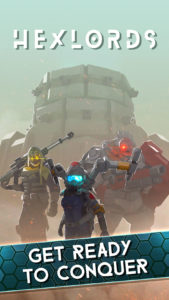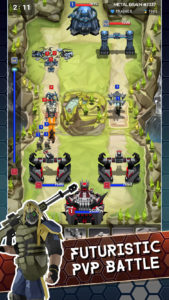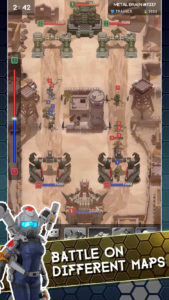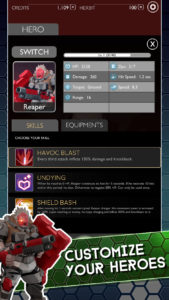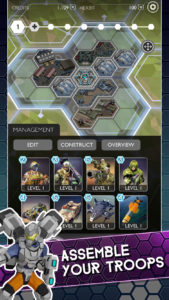Hexlords: Quantum Warfare
PREFACE
After World War II, the Allied forces, the USA, Great Britain, France, Russia and China were all in agreement that a destructive event like another World War could not be allowed to ever happen again. They came up with a plan to create one central government to govern the entire world, with representatives from each and every country – including the Axis powers of Germany, Italy and Japan – that would have an informed view of every country as well as an equal say in the running of them. Coming off of the heels of World War II and a worldwide yearning for a lasting peace, negotiations with every country was swift and the United Democratic Government was established in Brussels in 1947.
The United Democratic Government & Economics
Each country makes an oath to preserve the culture, character, and legacy of each and every country, so for example, a country such as Japan would retain its rich cultural history and traditions that would have made it quintessentially Japanese, i.e. cherry blossoms, samurais, pagodas, cuisine etc. However, as a global government, all borders are open – each country welcomes ideas of globalisation and free trade, and immigrants come and go freely with no visa requirements, although travel is tightly controlled and quotas are placed to ensure that no country that has more positive prospects will be over-populated by one nationality or otherwise. Due to this, every employable person is registered to a recruitment agency in their respective countries that handles requests and placements worldwide. Although different careers still demand higher wages as they do now, the economies in each country for better or for worse have continued to gain parity throughout the years, due to the input of other countries and the relatively free movement of labour.
The Voting Reach
General running of countries was left to representatives and their ministries and were to be reported at each council. Outside countries also have no direct control over other countries’ rule, and they are generally left to be independent. Any concerns e.g. civil unrest or state of economy pertaining to a certain country may be brought up during council and actions to intervene may be voted on. Due to these collaborations, warlords in countries like Africa and Thailand have largely been removed from power, although a few still remain and are left to their own devices as long as they don’t attract too much attention or interfere with other countries’ interests, for example when a country has many of its citizens working in that country.
 Culture Clash
Culture Clash
As citizens of every country were free to move around, cultures have slowly mixed throughout the years, creating unique customs and events. For example, many Middle Easterners migrated to Africa as the climate was similar and its prospects became more positive after the culling of warlords. China had its economic reforms in the 1950s rather than the late 1970s and has thus developed much sooner, increasing the speed of technological advancement. Several countries therefore had a booming Chinese population in certain states, for example Vancouver has been nicknamed New Beijing due to the growing majority of settlers from China. Vocabulary from different languages started to mesh together to create unique slang in each country – their own patois.
Ministry Monitoring
Ministries were allowed higher levels of monitoring of their countries due to the fear of potential uprisings. As technology advanced throughout the years, citizens became increasingly scrutinised and everything from the TV they watched, the places they visited, and the things they purchased were observed. Every person had to be registered with their current ministry and it was possible to track their every move through CCTV feeds. Most citizens understood the need for this, but it also created negative sentiment in others as their own privacy and trust in themselves was valued. Of course, less developed countries did not have such extensive monitoring methods, and not all traffic could be intercepted; there were ways that certain people came up with to stay under the radar.
The Underground Market
Although everything seemed tranquil on the surface, the early entry of China into the global economy created more competition and quicker innovation; and with increased innovation comes the desire to weaponise that innovation. Countries also continued weapons research on the side and it was a rather open secret that they were – Everyone still wanted to protect themselves in case another war happened. More and more illegal weapons and services started appearing on the black market where enterprising individuals would sell their services to the highest bidder. The warlords dethroned from power had to evolve to survive, and they thrived on the black market, offering PMCs and branching out into technology – hacking, security, etc. The underground market uses a currency called HexBits – encrypted and difficult to track.
 The Breaking Point
The Breaking Point
The year 2016 was the breaking point for the UDG. The constant cooperation and compromises countries have had to make had increasingly been taking its toll on them, and tensions between countries have been slowly increasing, with the cracks in relationships beginning to show even more. Many felt that they were losing their cultural identity with the constant influx of immigrants and their obligations they had to cater to all their needs. While a few countries thrived with this arrangement, others have started to become more secretive and exclusive, and the UDG councils became more of a formality than a place where real discussion took place. This sentiment was reflected in politics – Great Britain was the first ever country to pull out of its duties in the UDG due to the results of a nationwide referendum in what people coined the Brexit, and the USA appointed Ronald Thump as their new minister who wanted to “Make America Amazing Again” and cut back on their duties and commitments to the UDG. This created a domino effect where other countries tried to follow suit, and were met with both opposition and support from different parties – opposition from members of the UDG; and polarising reactions from people in their own countries. The last standing original members of the UDG, tried to discourage ministers from doing the same and their methods grew increasingly violent and desperate. As time went on, violence between citizens of differing views and countries grew and riots and rebellions were started. Players in the Underground Market grew more arrogant and began to surface in the wild, fanning the fires for a full-on outbreak of war by the year 2020.
 Year 2030
Year 2030
The world is now split up into different groups of ideals –
There are main characters and NPCs that represent all groups. Each group has a forerunner and a face that represents their ideals and history.
The Isolationists – The people who want absolutely nothing to do with other countries and would rather be completely autonomous. This group is the most radical and are relentless in their pursuit of a single state system. They have historically been the smallest group of the four, but are supported by powerful people – business tycoons who are sick of other races taking what’s theirs, and Underground Market sellers that see them as the biggest sources of their profits. By the nature of this group, they repel most outside parties that don’t share the same beliefs due to their single mindedness and insistence of their goals. The other camps lovingly call them the Zealots.
The Separationists – Those who desire their independence, but still don’t want to be totally removed from the rest of the world. This group along with the Modernists have the most supporters as they have the most progressive views of the world – an evolution to the world that the UDG had created to one that was more flexible and sustainable. These two groups rely more on diplomacy and technology than brute strength. This group is nicknamed the Modernists.
The Conservatives – Those who understand the need for some distance between themselves and other countries, but at the same time want to safeguard the constitution founded by the UDG. The Guards.
The Conformists – This group contains the remnants of the UDG; those who still believe in a singular global nation. Ministers still loyal to the UDG have retained most of their military infrastructure, and like the Isolationists, are a smaller group but are still supported by powerful forces, but with ideals not as off-putting as the Isolationists. The United.
The whole world is now at war with each other, regardless of nationality and race. Everyone has different ideals about the world they want to live in, but they fight for one of these four groups.
Leaders in each group create their own clans, although they’re all basically working towards the same goal. Alliances are more easily built between clans and they typically last longer.
Underground Market vendors have become public, selling their services to both Ministries looking to quell the uprisings as well as budding armies and individuals trying to make a name for themselves in the new world. Vendors can therefore be considered part of a neutral party. HexBits is still a viable currency and is stronger than ever, as users still retain a certain amount of anonymity and the value of HexBit doesn’t fluctuate. Each group is treated differently in the Underground Market. Separationists and Modernists are more tech savvy so can research and purchase tech for less HexBits, while Isolationists and Conformists have greater military knowledge and therefore have an advantage when it comes to combative enhancements.
There are terrorist cells scattered around the world not loyal to any group, and exist solely to disrupt the progress of any clan. These are NPC enemies that any group can fight for resources or have to protect their bases from once in a while.
Gameplay
Hexlords is a resource management and tower defense-style game in the vein of iconic strategy games like Red Alert and Starcraft where you can hire mercenary generals and create multiple bases that provide you with different units during battle, giving players a very flexible playstyle. They are then match-made with other gamers of similar level and the objective is to run through their checkpoints to demolish their base. Create your own alliances with other players and battle with others to earn the chance to be the ultimate Hexlord.
